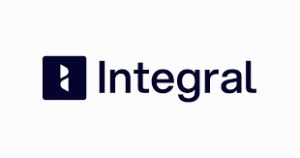The Role of AI in Modern Auditing Practices
Auditors using AI can detect financial risks early, proactively preventing issues before they escalate.

Experience the future of auditing with AI-driven software on a laptop—automating analysis, improving accuracy, and delivering real-time financial insights.
The auditing profession is evolving at an unprecedented rate. Artificial Intelligence (AI) and software automation are the driving forces behind this change. Audits once involved long hours of manual data entry and error-checking. Now, AI helps auditors sift through vast amounts of data in record time. It catches fraud and identifies financial risks more accurately. But what does this mean for the future of auditing? The shift to AI and automation isn’t just about speeding up the process. It’s about enhancing the quality of audits. It’s about uncovering deeper insights. Ultimately, it’s about providing clients with more value. Let’s explore how AI and software are transforming auditing and why these technologies are now essential for the modern auditor.
AI in Auditing: The Power of Data at Scale
For years, auditors have been using sampling techniques—reviewing a small portion of data and assuming it represents the whole picture. While this worked for a long time, it meant that a significant chunk of the data was left unchecked. This potentially hid crucial errors or fraudulent activities.
Enter AI. With its data-processing capabilities, AI can analyze 100% of financial transactions, not just a sample. Instead of manually scouring through thousands of records, AI can quickly process and flag potential risks. KPMG’s AI-powered platform, Clara, is a prime example of this technology in action. By using AI to look at all data, auditors can spot issues easily. These issues would have been difficult to find with traditional methods. It’s like having a super-powered magnifying glass that helps auditors examine everything with precision, offering a much more complete audit.
As AI tools become more refined, the auditing process is shifting from reactive to proactive. Instead of waiting to identify issues during the audit, auditors can now identify anomalies earlier and act sooner. This shift has already made a significant impact on how audits are carried out. Auditors can concentrate on understanding the financial health of a company. They are also helping their clients mitigate risk.
Fraud Detection: How AI Is Raising the Bar
Fraud is a constant concern in the world of auditing, and even the most diligent auditors can miss it. Fraudulent activities often involve complex patterns, and sometimes these patterns are subtle or hidden deep within vast amounts of data. Detecting fraud is a challenge, but AI is changing the game.
AI’s ability to process and analyze massive amounts of data has a significant impact. It helps auditors spot suspicious patterns. These patterns would be virtually impossible to detect manually. For example, AI can detect unusual spending patterns. It can track irregular transactions between vendors. It can also identify anomalies in the timing or method of payments. MindBridge AI’s machine learning technology allows auditors to automatically scan financial transactions. It helps highlight potential fraud indicators.
In fact, AI-driven fraud detection tools have been found to improve fraud detection accuracy by up to 40% when compared to traditional methods. This kind of performance is crucial for audit firms. They are under increasing pressure to deliver highly accurate audits. They must also protect clients from financial crime.
Reducing Manual Work: How AI and Automation Free Up Time
Audit firms are known for long, tedious hours of data entry and manual reconciliation. These repetitive tasks don’t just slow down audits—they also increase the likelihood of human error. AI and automation are stepping in to take over many of these manual processes, significantly improving efficiency.
Tools like CaseWare are helping auditors automate many tasks that were previously time-consuming. These tasks include reconciling accounts, comparing documents, and checking for errors in financial statements. With automation taking care of these time-consuming tasks, auditors can focus on higher-level activities. They can provide insights into the financial performance of a company. Auditors also advise on risk management and offer strategic advice to clients.
This doesn’t just save time—it also reduces the risk of human error, making audits more accurate. Audit firms have reported that automation can reduce the time spent on routine tasks by as much as 60%. This allows auditors to focus on adding more value for their clients. And with more time for strategic thinking, auditors can deliver deeper insights and drive more meaningful conversations with clients.
Predictive Analytics: Spotting Risks Before They Happen
Auditing has traditionally been a retrospective process auditors look at past financial records and assess the accuracy of those records. But what if you could look forward, predicting potential risks before they even happen?
This is where predictive analytics comes in. Powered by AI, predictive analytics analyzes past and present data to identify emerging risks. For example, AI can analyze trends in financial ratios. It can also examine liquidity and cash flow. These analyses help forecast potential issues, such as a company’s ability to pay its debts in the future. With this ability, auditors can take a more proactive approach, alerting clients about potential risks long before they turn into significant problems.
Predictive tools like those from EY are helping auditors anticipate risks. These tools assess things like liquidity or changes in financial ratios. These factors could point to trouble down the line. By using AI to predict these issues, auditors can address them early. This provides valuable insights that clients can use to make informed decisions.
Improving Collaboration with Cloud-Based Solutions
The global nature of business means that many audit teams are spread across different countries, time zones, and working environments. This can create challenges for collaboration, as auditors need to share and access data quickly and securely. Cloud-based software solutions are stepping in to solve this problem, enabling real-time collaboration and seamless sharing of data.
Cloud platforms like AuditBoard make it easier for teams to collaborate on audit work. They can share files securely and access financial data in real time. This is possible no matter where they are located. These tools also offer scalability, so audit firms can tailor their software to meet the specific needs of each client. This improves audit efficiency, reduces the chance of errors, and speeds up the entire process.
AI and Software: The Future of Audit Quality
The ultimate goal of AI and software in auditing is to improve the quality of audits. AI handles the heavy lifting, whether it’s processing data, identifying risks, or detecting fraud. Auditors have more time to focus on interpreting the data. They can then provide strategic advice to their clients. This means better quality audits and more value for the client.
For example, PwC’s Halo platform uses AI to process entire datasets, flagging issues that might otherwise go unnoticed. This deep level of analysis gives auditors better insights into financial health. It allows them to provide recommendations for improvement. They can offer strategic guidance based on comprehensive data.
As audit technology continues to evolve, AI will become more advanced. It will provide auditors with even deeper insights. This progression will make audits more accurate and efficient. The future of auditing lies in combining human expertise with AI-driven tools that enable auditors to work smarter, not harder.
The New Era of Auditing
AI and software have already made a huge impact on the auditing profession, and this is just the beginning. AI can process large amounts of data. It has the ability to detect fraud, automate routine tasks, and predict risks. The audit process is now more efficient, accurate, and insightful than ever before. As technology continues to evolve, the role of auditors will change. They will move away from manual number-crunching. They will focus on providing higher-value insights and strategic advice.
For audit firms that are embracing AI, the future is bright. By incorporating AI into their audit processes, they can provide more accurate audits. They can also better detect risks. Additionally, they deliver greater value to their clients. As AI technology continues to improve, auditors will gain access to even more tools. These tools will help them stay ahead in a rapidly changing industry.






